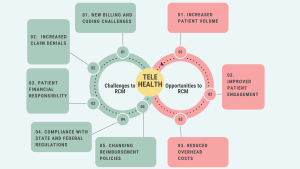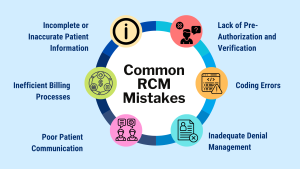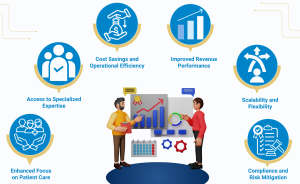Introduction
For healthcare practices, ensuring accurate referral and authorization processes is vital for both patient care and financial stability. A nephrology practice faced significant financial setbacks due to overlooked HMO insurance requirements. This led to unpaid claims, strained patient relationships, and reduced referrals from primary care physicians (PCPs). By implementing a structured referral tracking process, Way2Cloud helped the practice recover lost revenue, improve operational efficiency, and restore their referral network.
The Challenge: Unchecked HMO Insurance and Referral Issues
The nephrology practice was facing frequent insurance denials because they were unknowingly treating patients without valid HMO referrals. As a result:
- Many patients visited the practice believing their treatment was covered, only to find out later that their HMO plan required a referral.
- Insurance companies rejected claims, leaving the practice unable to recover payments for services rendered.
- Billing patients directly for these services was not an ethical option, resulting in significant revenue loss.
- The practice’s relationship with referring PCPs weakened as these errors reflected poorly on their operational standards.
The Solution: Implementing a Proactive Referral Tracking Process
Way2Cloud collaborated with the practice to establish a structured referral management process:
- 14-Day Referral Check Process:
- Way2Cloud began sending the practice a list of upcoming patients scheduled within the next 14 days who lacked proper referrals or authorizations.
- This proactive approach allowed the office staff to request the necessary referrals or authorizations directly from the insurance providers in advance.
- Same-Day Check for Missing Referrals:
- On the day of each appointment, Way2Cloud implemented a final check to identify any patients still missing the required referral.
- If a missing referral was identified, the practice would reschedule the appointment to avoid rendering services that wouldn’t be covered.
The Results: Improved Efficiency and Financial Recovery
This streamlined process yielded impressive results:
- 100% Elimination of Referral and Authorization Denials for Office Patients: By ensuring all referrals and authorizations were secured in advance, the practice eliminated these denials entirely for the year 2024.
- Improved Revenue Flow: With denials reduced to zero, the practice effectively recovered substantial revenue that would have otherwise been lost.
- Stronger Relationships with Referring PCPs: The improved process restored trust with primary care doctors, ensuring a smoother referral workflow and strengthening professional relationships.
- Increased Operational Efficiency: The practice’s administrative staff could now focus on patient care rather than scrambling to address last-minute referral issues.
Conclusion
By implementing a proactive referral tracking strategy, the Jacksonville nephrology practice successfully eliminated referral-related denials and improved revenue stability. Partnering with Way2Cloud allowed the practice to streamline their processes, safeguard financial health, and rebuild valuable relationships with referring providers. For healthcare organizations facing similar challenges, investing in proactive referral management is crucial to ensuring both operational efficiency and improved patient care outcomes.








